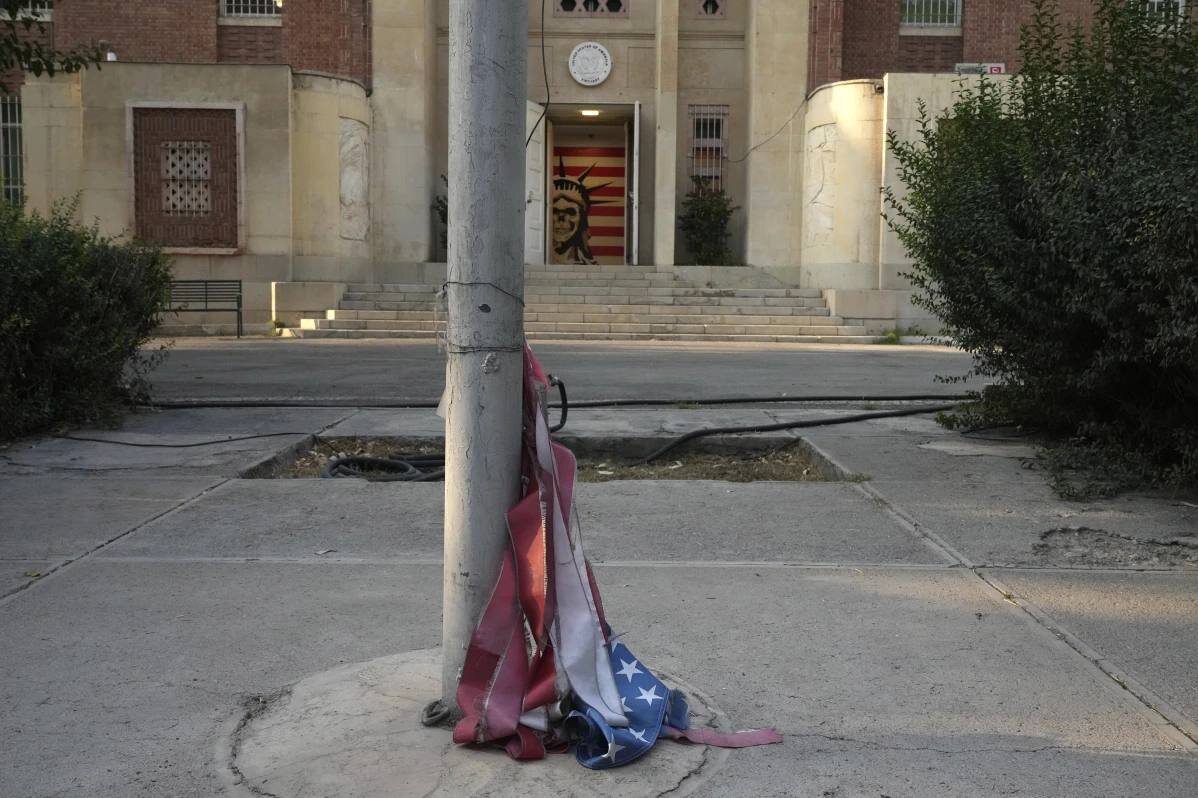US Sisyphean dream Regime change in Iran
U.S. Sisyphean dream: 'Regime change' in Iran
TEHRAN – Ted Cruz is a notoriously abominable U.S. senator, who usually believes Washington hasn’t killed enough people through its war around the world. His foreign policy initiatives are often the subject of folly even among Americans. But what he says about Iran bespeaks an undying dream the U.S. has always had in regard to the country.

In recent remarks on some American news show, Cruz said the right resolve for Washington and Israel is “regime change” in Iran. “I’m not saying we go to war with Iran. What I am saying though is that we use every bit of economic pressure and diplomatic pressure,” he stated before claiming that the overthrow of the Iranian government would “dramatically enhance America’s national security”.
Similar remarks were made last week by Mark Dubowitz, CEO of the Foundation for Defense of Democracies (FDD), who said the U.S. must smuggle advanced weapons into Iran to arm anti-government elements.
Regime change has been a recurring feature of U.S. foreign policy, but it has especially been the modus operandi regarding Iran since the U.S. overthrew Mohammad Mosaddegh's democratically elected government in 1953.
What is regime change?
Regime change refers to the process by which one government or ruling authority is replaced by another, often through external intervention. Foreign powers have historically employed a variety of strategies to effectuate regime change in other countries, each with its own implications for international relations, stability, and the affected populations.
The 2003 US-led invasion of Iraq, often referred to as the "Iraq War," is a prominent example of a foreign-initiated regime change. The invasion was carried out under incorrect and fabricated claims, and its end results were widespread instability, sectarian violence, the rise of extremist groups, a humanitarian crisis, economic devastation, and long-term regional implications.
When it comes to Iran, the U.S. does not have the option of direct military intervention. Instead, it relies on economic sanctions, propaganda and disinformation, and support for foreign-based oppositionists. These tools are employed to cultivate and amplify internal dissent to transform them into protests and, ultimately, violent unrest that could destabilize and topple the government.
“U.S. officials' talk of pursuing regime change in Iran is not indicative of a novel policy,” said Amir Ali Abolfath, an expert on North American affairs. “Washington has been engaged in efforts to overthrow the Iranian government since the Islamic Republic's inception. It’s just never been successful.”
Washington's two most significant attempts to destabilize the Iranian government occurred in 2009, when it capitalized on vote-rigging claims made by two defeated presidential candidates to incite widespread protests, and in 2022, when it exploited the tragic passing of a young woman, which was attributed to underlying health issues, to instigate protests that ultimately resulted in violent riots causing the deaths of approximately 300 people, including over 100 security personnel.
The first major U.S. bid to destabilize the Islamic Republic was thwarted when millions of Iranians demonstrated their support for the ruling system on December 30, 2009, effectively countering months of preceding riots. The second wave of unrest taking place in the fall of 2022, though significantly more violent, failed to gain the same traction and naturally fizzled out after some time.
Will the U.S. ever manage to topple the Islamic Republic?
According to Abolfath, the U.S. faces long odds in its attempts to destabilize the Iranian government. While acknowledging that sanctions have caused hardship, he contends that economic pressure alone won't trigger the kind of violent uprising needed for regime change, because Iranians know they are suffering because of external forces, and no amount of propaganda is going to change that.
Speaking at the U.S. Council on Foreign Relations earlier this month, Secretary of State Antony Blinken said Washington should use all its means to bring about the downfall of the Iranian government: “We should further empower the people inside Iran who want a different future for the country.”
Blinken’s remarks received a clear response from Leader of the Islamic Revolution Ayatollah Seyyed Ali Khamenei, who declared that the Iranian nation would “trample underfoot” any American mercenary seeking to sow unrest in the country.
source: tehrantimes.com